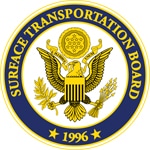
This past June, Senator Fischer introduced the Railroad Advancement of Innovation and Leadership with Safety (RAILS) Act – a legislative initiative aimed at rolling back rail safety requirements including electronically controlled pneumatic (ECP) brakes.
If that isn’t disturbing enough, Senator Fischer is the chair of the Senate Surface Transportation Subcommittee.
Tag: Surface Transportation Board
President Donald J. Trump has appointed Ann Begeman to serve as Acting Chairman of the Surface Transportation Board (STB). Begeman is currently serving a second, five-year term as a Member of the Board following her recent nomination by President Barack Obama Dec. 7, 2016, and her unanimous confirmation by the U.S. Senate Dec. 9, 2016. Ann first joined the Board May 2, 2011. Her current term expires Dec. 31, 2020.
“It is an honor to serve the public on the Board, and I am grateful to President Trump for the opportunity to lead the agency at this time,” said Begeman. “I look forward to continuing the important mission of the STB in my new capacity as Acting Chairman, working with the new Administration, my fellow Board Members, Daniel Elliott and Deb Miller, our dedicated agency staff, and our important stakeholders. I also wish to recognize former Chairman Daniel Elliott for his service and leadership, and his sincere efforts to facilitate a smooth transition during the change in administrations.”
Prior to her 2011 appointment, Begeman held Senate staff positions on Capitol Hill for more than 20 years, playing a key role in the crafting of major transportation legislation, including the ICC Termination Act, which created the STB. She served as the Republican Staff Director for the Senate Committee on Commerce, Science, and Transportation under the leadership of U.S. Senator Kay Bailey Hutchison and as the Committee’s Deputy Staff Director and Transportation Policy Advisor under the leadership of U.S. Senator John McCain. Begeman has also served as Legislative Director and Acting Chief of Staff for Senator John McCain and as a Legislative Assistant for U.S. Senator Larry Pressler. She has also worked in the private sector, serving as a benefits specialist for First American Bankshares, Inc.
Begeman is a native of Humboldt, South Dakota. She earned a B.S. in business administration from the University of South Dakota.
Chairman Daniel R. Elliott III of the Surface Transportation Board (STB) visited the Canadian Transportation Agency (CTA) in Ottawa, Canada, and signed a Memorandum of Understanding (MOU) to facilitate information sharing between the agencies.
The CTA is the economic regulator of the freight railroads and other modes of transportation in Canada. Chairman Elliott signed the MOU with Dr. Scott Streiner, chairman and chief executive officer of the CTA.
The MOU memorializes the ongoing relationship that the two agencies have cultivated in recent years. It recognizes the importance of their engagement to promote ongoing information exchanges on developments in rail transportation, best practices in their respective regulatory approaches, and recent regulatory activities and current events. The agencies will exchange only information that is in the public domain in the United States and Canada to ensure that no confidentiality concerns are breached.
“The United States and Canada are linked in so many ways, not least of them by a vast rail network,” Chairman Elliott stated in Ottawa. “It is an honor today to be signing this Memorandum of Understanding between the STB and the CTA, marking our commitment to be a resource to each other in the economic regulation of freight railroads. This friendship will enable us both to engage in productive dialogue on better regulatory practices to our stakeholders and the citizens of our countries.”
Click here to view the electronic version of the MOU.

First, the Board decided that it would consider on-time arrival and departure at all stations along a passenger train’s route for purposes of assessing on-time performance. The Board will deem a train “on time” if it arrives at, or departs from, a station no more than 15 minutes after its scheduled arrival or departure.
The Board also announced that it is withdrawing its proposed policy statement on issues that may arise, and evidence to be presented in proceedings under PRIIA, in favor of a case-by-case approach to these complex matters.
“Reflecting careful consideration of an extensive public and stakeholder response to our most recent passenger rail proposals, these decisions will better position the Board to implement its responsibilities under the Passenger Rail Investment and Improvement Act of 2008,” stated Board Chairman Daniel R. Elliott III. “Improved passenger train on-time performance is an important goal, and the Board’s decisions will support that goal by clarifying the trigger for starting a proceeding, while allowing more complex and detailed issues to be resolved in the context of individual cases.”
Click the link to view the Board’s decision on On-Time Performance Under Section 213 of the Passenger Rail Investment and Improvement Act of 2008, Docket No. EP 726.
Click the following link to view the Board’s decision on Policy Statement on Implementing Intercity Passenger Train On-Time Performance and Preference Provisions of 49 U.S.C. § 24308(c) and (f), Docket No. EP 728.

Yesterday, STB Chairman Daniel Elliott III released a summary that outlines the major points and details of the Act. To read the complete press release, click here.

The meetings will enable the STB to better assess what types of data might be useful to the public, and how individual railroads monitor performance. With measures in place to ensure public notice, fairness, and transparency, the Board is waiving its general prohibition on ex parte or private communications for a limited time in this proceeding.
“This will be the Board’s first permanent collection of service-related data. These informal meetings will allow open and candid conversations between STB staff and stakeholders regarding the highly technical data questions at issue here,” STB Chairman Daniel Elliott said. “Dialogue between stakeholders and STB technical staff is especially valuable and efficient in these informal circumstances, outside of an appearance before the Board.”
The Board’s decision announcing the meetings and providing information for their scheduling in United States Rail Service Issues—Performance Data Reporting, EP 724(Sub-No. 4), can be found on the Board’s website, www.stb.dot.gov, under “E-LIBRARY” / “Decisions & Notices / 11 / 9 / 2015.”

Hamberger
WASHINGTON, D.C. – The Association of American Railroads (AAR), leaders from its member railroads and economic experts today urged federal regulators to beware of upending numerous national economic goals if they choose to pursue re-instituting revenue caps on freight rail companies.
Speaking before a Surface Transportation Board (STB) hearing on railroad revenue adequacy, AAR President and CEO Edward R. Hamberger told the Board that misapplying regulations would have far-reaching impacts on the freight rail industry’s ability to sustain the billions of private funds spent by railroads each year to build, maintain and upgrade the nation’s 140,000-mile rail network.
“As you take up the issue of revenue adequacy, you are painting on a much, much larger canvas than just the inside of this room,” Hamberger said. “What you are considering and may decide here in this hearing room a stone’s throw from the U.S. Capitol will ripple across the economy and ultimately impact most every American.”
Hamberger, and others testifying before the Board, ran through many examples of how earning sufficient revenues has allowed railroads to make massive private investments in rail infrastructure – nearly $29 billion in 2015, and $575 billion since 1980. This is in contrast to other modes of transportation, such as highways, which are funded by taxpayers.
Regulation of railroads’ overall revenue levels would run counter to Congress’s goals in the Staggers Act of 1980 that partially deregulated the freight rail industry to allow railroads to earn sufficient revenue to meet their long-term needs without having to rely on the federal government.
As Dr. Roger Brinner, chief economist with SandPointe, LLC testified, the concept of revenue adequacy should be a goal, and not a directive to constrain revenues; railroads should not be penalized for improved financial performance.
“Now comes a handful of interest groups that want you to cut their transportation costs by direct government intervention at the expense of the greater good. Let’s call it what it is: they want you to institute a regime of wide ranging price controls on freight railroads,” Hamberger testified.
Hamberger outlined the many national goals that would be at risk, should the STB decide to relapse into 1970s-era regulatory policies. Doing so, he noted would undermine the industry’s ability to: continue to improve rail safety, efficiency and reliability; increase U.S. exports; support U.S. energy independence, and effectively provide a healthy rail network relied upon by millions of daily Amtrak and commuter rail passengers.
“Freight rail success today is due to the foresight of the government leaders in 1980 who unleashed the transformational power of the market place through partial deregulation,” Hamberger said. “Subsequent federal involvement in rail economics both in the legislative and regulatory arenas honored the belief that a developed nation requires a top-notch freight rail system and that system is best provided by private companies in control of their resources rather than through the government.”
Daniel R. Elliott III was sworn in June 26, 2015, as the Chairman of the Surface Transportation Board (STB), pledging to continue to promote transparency and to improve and streamline regulation of the Nation’s freight railroads.
He was nominated to the STB by President Barack Obama on January 13, 2015 for a four year term expiring Dec. 31, 2018. He was confirmed by the U.S. Senate on June 22, 2015. This is Chairman Elliott’s second term on the STB. He previously served as Chairman of the agency from Aug. 13, 2009 to Dec. 31, 2014.
At his confirmation hearing before the Senate Commerce, Science and Transportation Committee in May 2015, Elliott stated that he would continue the reforms that he had begun during his first term to increase STB transparency and efficiency; to promote a reliable rail network; and to bring more accessibility to the STB’s processes.
“I would like to thank President Obama for honoring me with this second appointment,”Chairman Elliott said. “I am so pleased to return to the STB to continue work to make sure the STB’s processes are fair, efficient and accessible for all stakeholders. I look forward to working with my fellow board members and board staff to continue the progress that we have made.”
Prior to Chairman Elliott’s first term at the STB, he served for 16 years as associate general counsel to the United Transportation Union. Earlier, he practiced at law firms in Washington and Cleveland. He graduated from the University of Michigan with a degree in political science in 1985 and earned a law degree from Ohio State College of Law in 1989.



